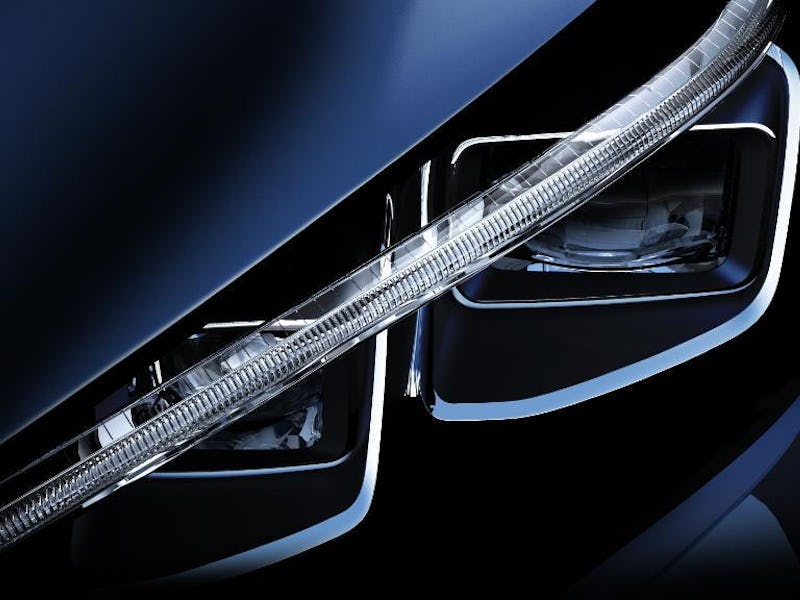Nissan looks set to rival Tesla with a next-generation Leaf electric car. The company posted a teaser image on Thursday that hints at a new version of the $30,680 vehicle. The current Leaf is the world’s best-selling electric vehicle of all time, and it’s one of the most visible rivals to the Tesla Model 3, a $35,000 vehicle set to enter production in July.
Tesla may have shown the world that electric vehicles had a viable future when it launched the $108,000 Roadster in 2008, but it was Nissan’s Leaf in 2010 that showed electric vehicles don’t need to break the bank. Since launch, the company has sold over 250,000 vehicles, traveling over three billion kilometers and preventing the emission of around 500,000 tons of CO2.
A cut-away of the 2017 Nissan Leaf, showing the batteries beneath the seats.
Nissan will have big shoes to fill with its new Leaf, but there’s room for improvement. The 2016 model with a 30-kilowatt hour battery pack has a range of 107 miles per charge. The Chevy Bolt that launched last year, starting at $36,620 with a 60-kilowatt hour battery pack, has a range of 238 miles.
When Tesla starts deliveries of the Model 3, it will enter a new market of entry-level electric vehicles currently dominated by Nissan. The current cheapest car Tesla makes is the Model S, which starts at $68,000 before subsidies. The company’s expansion into a new market will be coupled with an increase in annual production: where currently Tesla makes fewer than 100,000 cars per year, the company is aiming to produce 500,000 cars annually by the end of 2018.
At that same point, Tesla wants to reach Model 3 annual production rate of 250,000.
A Tesla Model 3 seen in this publicity image.
That means every year, the automaker will produce around the same number of Model 3s as were sold in the Leaf’s entire history. It’s a tall order, and Tesla will need to convince people that the Model 3 is better than the next-gen Leaf while also expanding the electric vehicle market overall.
It is unclear what size battery the entry-level Model 3 will include, but the car is stated to have a range of 215 miles. If Nissan can offer a better deal on range, it has a chance of eating into Tesla’s success. The showdown between the major entry-level EV makers is just beginning.
